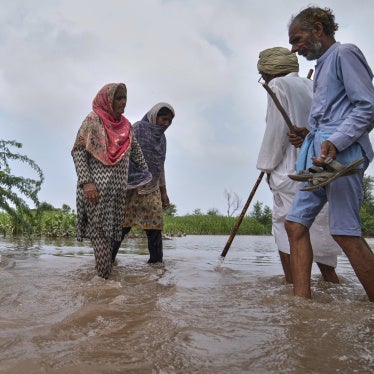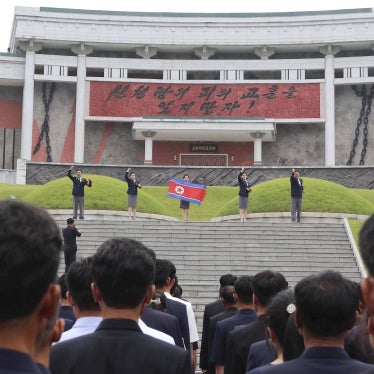As Cambodia prepared for national elections this Sunday, July 26, Human Rights Watch warned the international community not to give its stamp of approval to a flawed electoral process. The elections have been tainted by political violence and intimidation, and may not improve the country's progress towards genuine democracy, the rights group warned
Human Rights Watch also expressed grave concern about the weeks after the polling, and fears that once the international spotlight has been removed, there may be reprisals against provincial- and district-level opposition party activists.
"The international community needs to keep up the pressure and maintain a visible presence in Cambodia during the critical transition period," said Mike Jendrzejczyk, Washington director of the Asia Division of Human Rights Watch. "Foreign governments should respond strongly to any post-election abuses or violence." He urged them to support Cambodian human rights organizations and the Cambodia Office of the High Commissioner for Human Rights of the United Nations (COHCHR), which are carefully documenting political violence during the campaigning and balloting process.
Human Rights Watch also called for close monitoring of the post-election period, up until the seating of the new National Assembly and the formation of a new government.
A neutral political environment for the elections has never been established, Human Rights Watch charged: the ongoing climate of political violence has not been addressed, and opposition political parties have not had access to television or radio to broadcast their platforms, or been able to freely campaign, particularly in the countryside.
The role of international observers is crucial in ensuring the integrity of the polling process. However, only 250 teams, consisting of two international observers each, will be deployed during the polling to cover more than 11,000 polling sites and 1,600 counting centers.
Human Rights Watch urged donor countries and regional groupings such as the European Union and the Association of Southeast Asian Nations (ASEAN) to uphold international standards for this election and not overlook the serious shortcomings of the current electoral process. At stake is the credibility of the international community itself.
The one-month 'official' campaign period, which is relatively sanitized and artificial, does not reflect the larger context of violence and intimidation, documented by Human Rights Watch,
COHCHR, and Cambodian human rights organizations. Until the formal campaign period began on June 24, the CPP was virtually the only party able to freely and actively conduct political activities in the countryside. The CPP's membership recruitment campaign has included heavy-handed pressure tactics by local officials and militia, who have gone house-to-house to solicit thumbprints and pledges from the populace to vote for the CPP, confiscated and recorded identification numbers on voter registration cards, and conducted "mock elections" before the actual polling in which people are pushed to vote for the CPP.
These pressure tactics in turn may have created serious doubts among the rural electorate as to whether this Sunday's ballot will indeed be secret, with many people fearing repercussions or violence if they vote for opposition parties. In spite of the heavy intimidation, Cambodians could still turn out to vote in large numbers on Sunday, defying the threats not to vote or not to vote their conscience.
Despite high profile appearances by Sam Rainsy and Prince Ranariddh, who have drawn large crowds, local level opposition party activists in the countryside have been severely affected by the threat of political violence. The COHCHR has accumulated evidence on the killing of as many as 100 opposition members in the months following the July 5-6, 1997 coup. In addition, out of several hundred alleged incidents of political violence and intimidation received by COHCHR since May 25, eighty have been confirmed or assessed as credible, while another ninety cases are currently under investigation. Recent cases being investigated include eighteen murders which appear to have been related to the electoral process, such as the torture and killing of a FUNCINPEC electoral observer in June as well as the illegal detention and beating of Sam Rainsy Party supporters and scores of death threats and acts of armed aggression and intimidation. The Cambodian government has taken no action to prosecute anyone for these abuses or for the earlier killings.
"The international community has focused on the technical and logistical achievements of the electoral process only, largely ignoring their obligation to give an honest evaluation of the entire electoral process," said Jendrzejczyk. "They must now take steps to ensure that the post-election period is not also marred by violence and official impunity."








